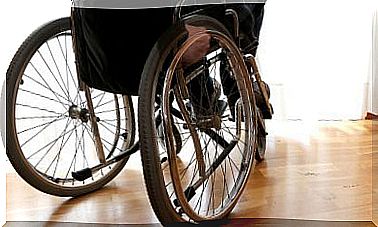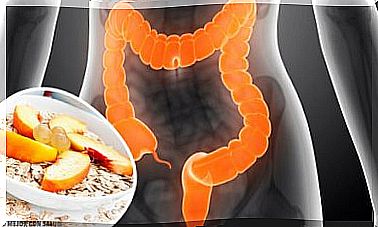6 Tips To Prevent A Heart Attack
There is nothing like leading a healthy lifestyle to prevent a heart attack. Now, how to achieve it? It is often easier said than done clearly and confidently. Well, there are some tips that can be very useful in this regard.
The following tips that we are going to tell you are designed to help people improve their habits, as well as eliminate those that do not provide any type of benefit. With perseverance and patience, you can easily incorporate them into your routine.
You may not find it easy to accomplish all of them at first. Do not be overwhelmed, the important thing is that you maintain your motivation and make an effort a little, day by day. In this sense, the best thing will be to progress slowly but surely, instead of crashing for wanting to accomplish everything right off the bat.
Why to prevent a heart attack?
In short, to enjoy a better quality of life. If your family has a history of heart attacks or similar problems, you should take precautions. This does not mean that you should live in fear, but it is necessary to learn to take responsibility for your own health and, in general, for yourself.
On the other hand, it is very important to take measures to prevent a heart attack since heart conditions are one of the main causes of death in the world, as revealed by the data provided by the World Health Organization.
Preventive tips

1. Make sure you eat well
The first of the tips to prevent a heart attack is to eat a balanced diet. For it:
- Keep your body hydrated by consuming enough water. Also, avoid soda, alcohol, and energy drinks.
- Try to eliminate precooked and ultra-processed products and replace them with fresh foods.
- Limit your intake of sugar and artificial sweeteners.
- Avoid consuming trans fats, such as vegetable oils or margarine. Replace them with healthy fats like avocado, coconut oil, or unpasteurized butter.
- Include, at least once a week, foods rich in omega 3 such as oily fish or take a nutritional supplement that contains it.
- Eat foods rich in vitamins C, E and beta-carotene . These nutrients help protect the arterial layer against oxidation. They are responsible for neutralizing free radicals, slowing down the wear and tear of the heart, as well as stopping the increase in bad cholesterol (LDL) in the arteries.
2. Reduce your salt intake

When there is too much sodium in the blood, the arteries narrow and the volume of fluid that circulates in them is greater, relative to their size. This increases the pressure in the arteries and can cause from hypertension to cerebrovascular problems.
However, this does not mean that you should cut off salt altogether. The body needs this element to perform some of its functions.
Ideally, you should add a maximum of a pinch of salt to your food. Of course, avoid those processed products, since they have a high level of salt in their ingredients.
3. Take care of your gastrointestinal health
Perhaps you think that what happens in your stomach has little to do with preventing a heart attack. However, this idea is far from reality.
The truth is that some serious intestinal problems, such as irritable bowel syndrome, can alter the body, to the point that a heart attack or stroke occurs.
The daily intake of probiotic and fermented foods can prevent heart problems, by promoting a healthy intestinal flora .
4. Learn to rest

A good rest is essential to keep adrenaline and cortisol levels normal. Therefore, getting plenty of rest will help you prevent a heart attack. Besides sleeping seven hours, it is necessary that the rest be of quality.
If you feel very tired during the day, try taking a short nap. Experts consider the perfect length of a nap to be 20 minutes. No more no less.
5. Maintain an exercise routine
In general, when cardiovascular problems are diagnosed and you want to prevent a heart attack, some physical activity is usually recommended.
Regarding the duration and frequency, it is clear that the ideal is to perform at least 30 minutes a day. And as for the maximum time, this will be indicated by the attending physician.
Although the most recommended activities are walking, jogging, running, swimming and yoga, there are other disciplines that can be more fun and motivating, such as:
- Tae Bo.
- Spinning.
- Kick boxing.
- Aerobic dance.
6. Avoid overexerting yourself
Just as it is advisable to lead an active lifestyle, it is also necessary to know how far to go and when to stop. To determine what your limit may be, you will need to consult with your doctor. The professional will tell you what is the most appropriate, according to your state of health.
Keep in mind that overexerting yourself will only exhaust you, not give you a better physical condition. Keep your efforts within healthy parameters. And, in case you need to make some kind of extra effort, like carrying weight, for example, ask for help.
Remember: if you take care of yourself every day, you will add more and more well-being to your life
Go ahead and complement your lifestyle habits with a relaxation session. You can use mindfulness to clear your mind, order your ideas and release accumulated emotional tension.
Remember, your psycho-emotional health is also important to take care of your heart. When your body is relaxed and your mind calm, your heart doesn’t have to work too hard to do its job. Then the risk of disease or a heart attack is reduced.
Try to take at least 20 minutes a day to cultivate your peace of mind. To do this, you can do a meditation session when you wake up or before sleeping. At the beginning it may be difficult for you to keep your mind and body still, but it will all be a matter of getting used to it, little by little.







